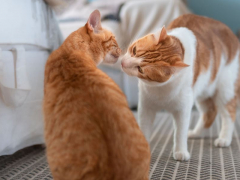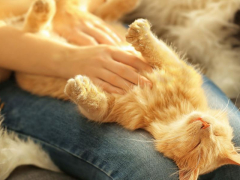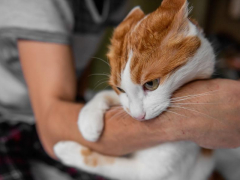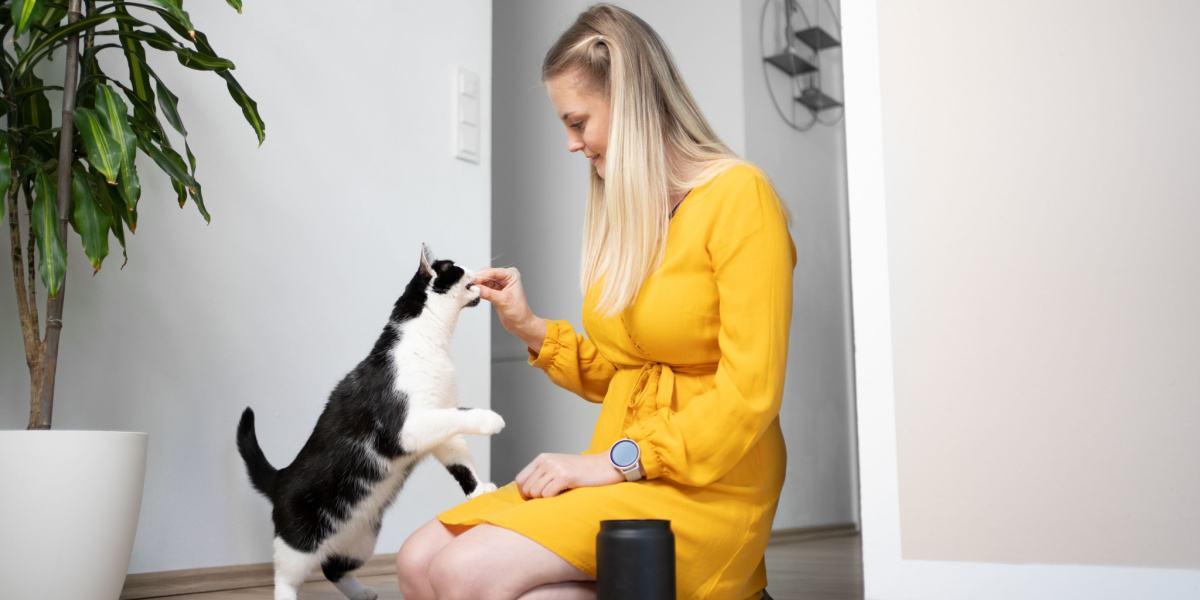
Has your cat been hanging around you more than usual? Is your cat trying to communicate with you or continually under your feet? Perhaps this is new behavior, and you are becoming worried.
There are lots of reasons that our cats become clingy and stuck to our side. Usually, they are seeking out our company and just love to be with us. But could there be another reason? Read on to discover the top five reasons that our cats won’t leave us alone.
1. You’re Fun – It’s A Compliment!
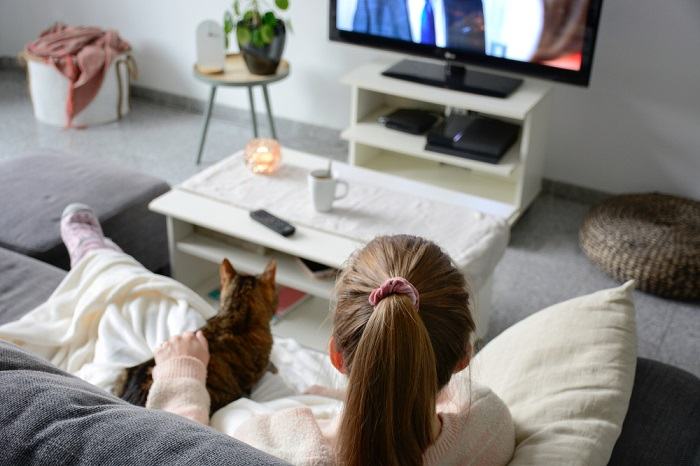
If your cat loves to play with you, then take it as a compliment – you’re an important person.
If you’ve ever caught your cat chasing their own tail or swinging from the drapes, you’ll know how much they love to play. Indoor cats and kittens can be particularly mischievous as they find ever-more inventive ways to entertain themselves. But games are so much more fun when someone else joins in playtime!
And so, when you get home from work, it’s no wonder your cat is excited to see their much-awaited playmate walk through the door! If your cat loves to play with you, then take it as a compliment – you’re an important person. But it’s not just your cat that will benefit from a healthy session of chasing the cuddly sardine.
Research shows that playful interactions with your cat will enhance your relationship. The more time you spend together, the closer your emotional understanding and bond will become.
Also Read: Why Is My Cat So Desperate For Attention? Top 10 Reasons
2. Even Cats Get Lonely
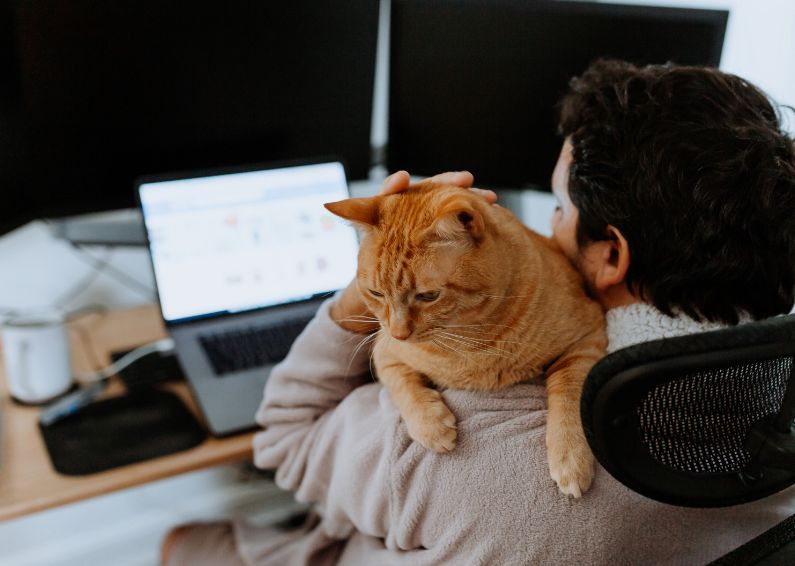
Cats are sociable animals, and while they might be territorial with other cats, domestication has led to a love of human company in most pet cats.
Cats are sociable animals, and while they might be territorial with other cats, domestication has led to a love of human company in most pet cats. Even if your cat is not a lap-sitter, it doesn’t mean they don’t want to spend time with you. Grooming, stroking, chatting to, or just sitting by your cat can provide the contact and comfort they seek.
Of course, if your cat wants a cuddle, that’s a bonus, as cats provide wonderful companionship for us too. In a recent review of scientific literature, there is a growing body of evidence that time spent with our pets can improve our mental health. After all, we are all aware of the unconditional love that they give us and how empty our homes feel when they are not there.
Also Read: Is My Cat Bored? 8 Signs to Watch Out For
3. Your Cat Is Imprinted On You
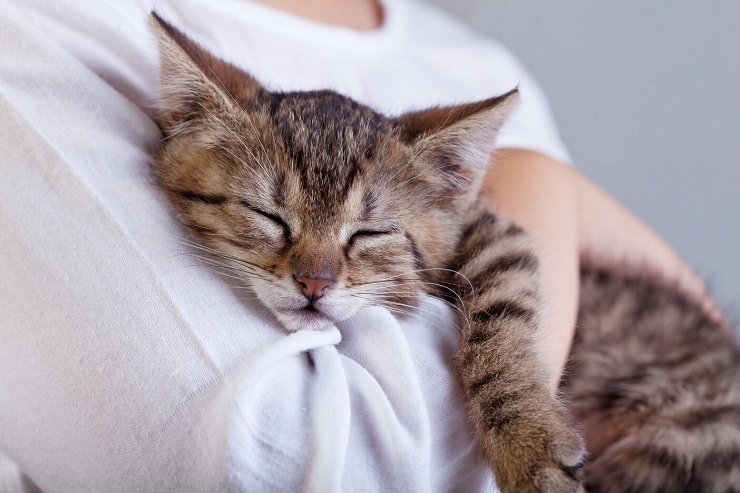
Imprinting is often associated with young animals who learn how to behave and acquire their own identity based on a close dependency on their caregiver.
Imprinting is often associated with young animals who learn how to behave and acquire their own identity based on a close dependency on their caregiver. The same can be said for cats who spend much time with their owners. You can read more about imprinting in pet cats here.
Imprinting is not bad if your cat feels secure in their home setting and relationship with you. But, if you get the feeling that your cat is unable to leave you alone and displays undesirable behavior whenever you leave them, this may be a sign of separation anxiety.
Also Read: Why Does My Cat Headbutt Me?
4. Separation Anxiety Affects Cats Too
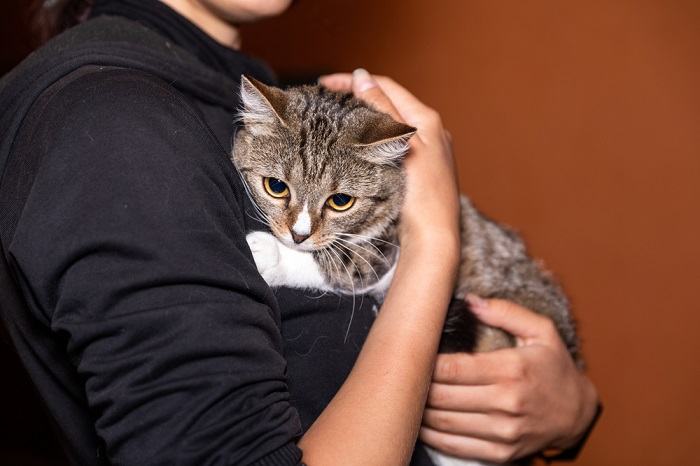
It’s not just dogs that suffer from separation anxiety or separation-related problems – cats do too!
It’s not just dogs that suffer from separation anxiety or separation-related problems – cats do too! Often this will present as the following undesirable behaviors:
- Destroying their surroundings
- Excessive vocalization
- Passing urine or poop around the home (outside of the litter box)
- Showing high levels of aggression
- Low mood or depression-apathy
- Signs of anxiety and agitation
Sadly, the behaviors described above are a common cause of people seeking to rehome their beloved cat, as the impact on everyone’s well-being cannot be understated. But you can do many things to help your cat if you feel they are suffering from separation anxiety.
For example, providing a predictable routine, encouraging independent play with interesting toys, creating a safe space, allowing outdoor access if suitable, and using pheromone diffusers can all help. Read more about separation in cats here.
Also Read: Why Do Cats Try To Bury Their Food?
5. Your Cat Is Trying To Tell You Something
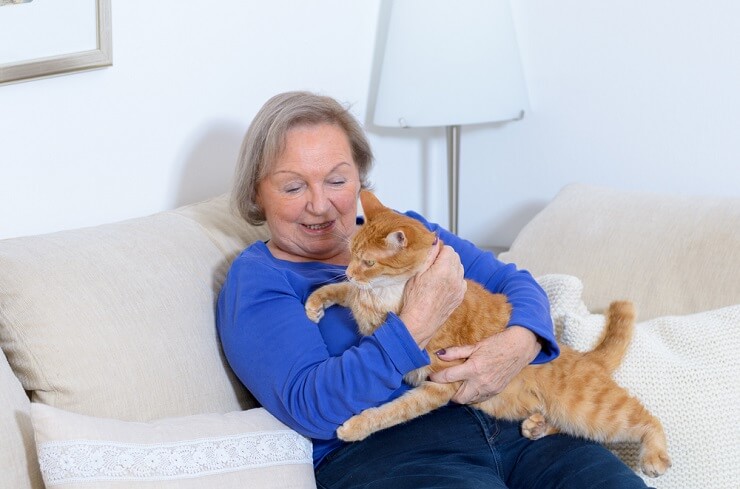
In addition to being vocal, your cat may get great comfort from close contact with you when you both sleep.
Cats follow us and vocalize to communicate with us. In fact, it is believed that cats vocalize when they are around people far more than when they are around other cats. This may be an adaptation of domestication. Owners often describe how their cat ‘tells’ them when they are hungry.
Research suggests that most owners believe that cats vocalize to communicate needs rather than emotions. Perhaps your cat wants to go out? Or do they want to be stroked or fussed? Chirping, chattering, purring, or meowing in a voice that is not too different from a baby crying is a great way to get our attention!
In addition to being vocal, your cat may get great comfort from close contact with you when you both sleep. After all, our primitive instincts tell us there is safety in numbers. But also, your cat may feel a strong urge to mark you with their scent from special glands on their chin. It’s important to them that everyone is clear about who is in your home unit. This will reassure them that they are part of the family too.
Also Read: 5 Reasons You Should Get A Second Cat (And 3 You Shouldn’t)
Conclusion
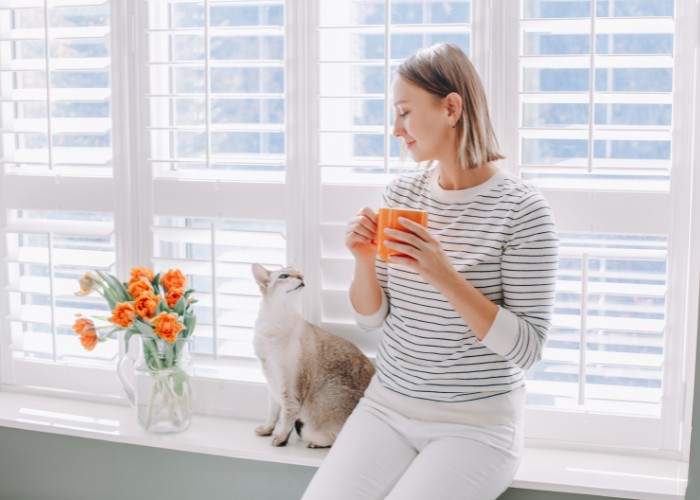
If your cat is unsettled and they are dependent on being by your side at all times, it’s time to consider if there is an underlying issue.
All our cats have very different personalities; some are very sociable and want to spend lots of time with us, while others have a fiercely independent streak. Some cat breeds, such as Siamese, ragdoll, or Maine coon, might be considered more ‘clingy cats.’ So, there is most likely an element of genetic predisposition to these behaviors.
On the whole, our cats are adept at fitting in with our routines and family life, and they will let us know exactly what they need or if our plans are not matching theirs! If your cat is unsettled and they are dependent on being by your side at all times, it’s time to consider if there is an underlying issue.
Health issues and behavioral concerns often come hand in hand. They are always better tackled early before the problem becomes overwhelming. After all, our kitties are an important part of the family!
Also Read: 10 Signs You Might Have A Clingy Cat
-
Brooks HL, Rushton K, Lovell K, Bee P, Walker L, Grant L, Rogers A. (2018). The power of support from companion animals for people living with mental health problems: a systematic review and narrative synthesis of the evidence. BMC Psychiatry. 18(1):31. Retrieved September 26, 2022.
-
de Souza Machado D, Oliveira PMB, Machado JC, Ceballos MC, Sant'Anna AC. (2020). Identification of separation-related problems in domestic cats: A questionnaire survey. PLoS One. 15(4), 1-19. Retrieved September 26, 2022.
-
Pongrácz P, Szapu JS. (2018). The socio-cognitive relationship between cats and humans–Companion cats (Felis catus) as their owners see them. Applied Animal Behaviour Science. 207, 57–66. Retrieved September 26, 2022.
